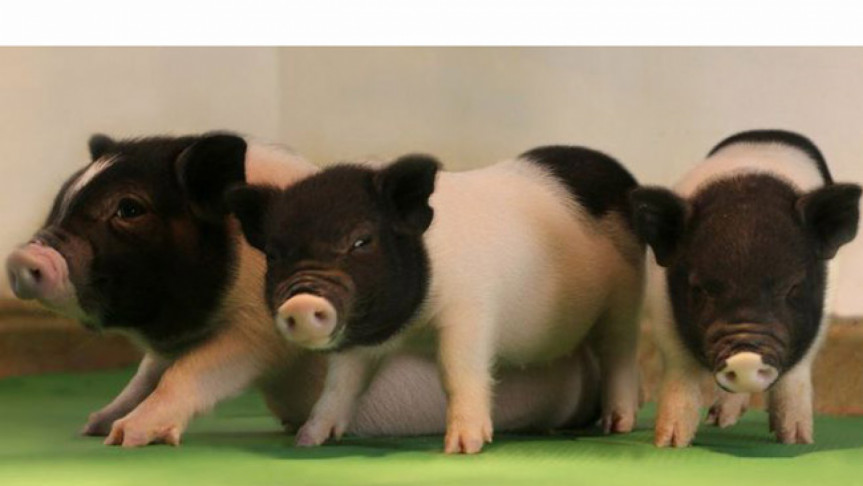China-born clones bring pig organs closer for human transplants

Scientists have cloned genetically modified piglets that may prove a safe source of organs for transplants into humans.
The 15 black-headed piglets, born in a lab in southwest China’s Yunnan Province, do not carry the active infectious viral gene which has impeded the process of pig-to-human transplantation for more than a decade, said Chinese members of an international research team who released their findings Friday, Xinhua reported.
Pigs have porcine endogenous retroviruses (PERVs) embedded in their genome. These viruses are able to jump from a pig cell to a human when mixed in the lab. The viruses can then be passed to fresh human cells from the infected one.
This standing block was cleared when the scientists using a gene-editing technique, known as CRISPR, inactivate the PERVs.
Geneticist Luhan Yang and her colleagues at the American biotech startup eGenesis are behind the breakthrough.
Yang, co-founder and chief scientific officer of eGenesis, joined professors from several Chinese universities and one from Denmark to pen the study published on the Science journal on Friday.
With modified genes, the scientists created PERV-inactivated pig embryos and transferred them into surrogate sows to produce clones, in the same fashion as Dolly the sheep was created.
Earlier this year, 37 such clones were produced by 17 sows in Yunnan Agricultural University.
Today, 15 are still alive with ages ranging from one to four months. They appeared quite healthy, said Wei Hongjiang, a professor with Yunnan Agricultural University who is one of the lead authors of the publication.
‘We now have the world’s first ever PERV-inactivated pigs,’ Wei told Xinhua. ‘For the first time, we have dealt with the concern of cross-species viral transmission risks.’
He said the international team will move to the next step, using gene editing to make pig organs less prone to attack by their human recipients’ immune systems, which has been another standing obstacle in the research.
George Church, Harvard geneticist and another eGenesis co-founder, called the clones a milestone in xenotransplantation as the most important safety issue had been solved.
Xenotransplantation means to use animal living cells, tissues or organs in people to bridge the shortfall in available human organs.
Yang said the world has more than 2 million patients who need organ transplants. The supply is way below the demand and the gap is only expected to grow wider.
Pig organs are of similar sizes and function to humans’ and are considered the most feasible for xenogeneic transplantation, she said.
In China alone, more than 300,000 patients are waiting for organ transplants but fewer than 10,000 surgeries are performed each year.
The country witnessed a surge of willing organ donors in recent years but far from enough to meet the need.
‘We are working hard on the earliest possible clinical use of xenogeneic transplants to help hundreds of thousands of patients waiting for organ transplants,’ Wei said.
Xenotransplantation remains controversial.
The WHO says while animals are a potential source of high quality, readily available live organs, xenotransplantation carries risks, especially the spread of known or unknown diseases.
It says some very serious diseases such as AIDS and SARS have originated from animals and urges governments to take regulatory control and ensure surveillance mechanisms before allowing xenogeneic transplants to take place.

 NTV Online
NTV Online




